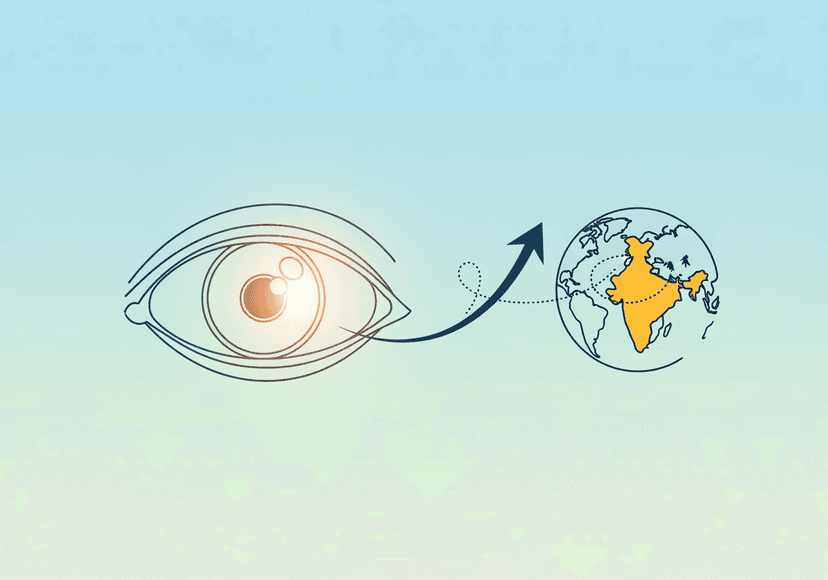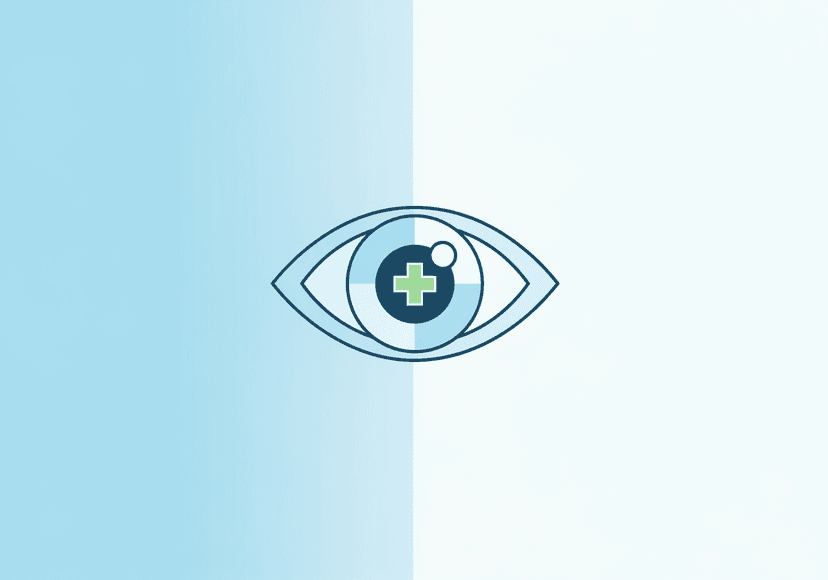
What to Pack for a Medical Trip to India
28 Jun, 2025
 Healthtrip
Healthtrip- Your Essential Document Checklist: What to Carry for a Smooth Admission
- Medication and Medical Supplies: How to Pack for Your Health Needs in India
- Dressing for Comfort and Climate: What Clothing to Pack for Your Hospital Stay and Recovery
- Financial Essentials: Managing Currency, Cards, and Payments in India
- Staying Connected: Why Packing the Right Electronics is Crucial for Your Trip to Hospitals like Fortis Memorial Research Institute, Gurgaon
- Personal Care and Comfort Kit: Small Items for a Better Recovery Experience at Max Healthcare Saket
- Conclusion
The Non-Negotiables: Your Document Dossier
Medical Records and Prescriptions
This is your health's passport. Gather all relevant medical history, including recent test results, scans (X-rays, MRIs, CT scans), a list of current medications with dosages, and a letter from your local doctor detailing your condition. It’s wise to have both digital copies on a USB drive or cloud storage and physical copies in a waterproof folder. Also, carry original prescriptions for all medications you're bringing into the country. This isn't just for your new doctor's reference; it’s crucial for clearing customs without a hitch. Having this file organized and ready will make your first consultation at a hospital like Fortis Memorial Research Institute, Gurgaon, smooth and efficient, allowing the medical team to focus on you, not your paperwork.
Most popular procedures in India
Comfort is Key: Clothing and Personal Items
Loose, Breathable, and Easy
When packing your wardrobe, think comfort above all else. You'll want loose-fitting clothes made from soft, breathable fabrics like cotton or linen. Pack items that are easy to put on and take off, such as button-down shirts, zip-up hoodies, and elastic-waist pants or pyjamas. Post-procedure, you may have limited mobility or sensitive incision sites, and wrestling with tight clothing is the last thing you’ll want to do. Pack a few more pairs of comfortable underwear and socks than you think you’ll need. Also, include a comfortable robe and a pair of slip-on slippers or sandals with good grip for walking around your hospital room or accommodation. This simple choice in clothing can make a world of difference in your day-to-day comfort during recovery.
Wellness Treatments
Give yourself the time to relax
Lowest Prices Guaranteed!

Lowest Prices Guaranteed!
Your Essential Document Checklist: What to Carry for a Smooth Admission
Embarking on a medical journey abroad is a significant step towards better health, but let's be honest, the paperwork can feel as daunting as the procedure itself. Think of it as preparing for the most important trip of your life—because it is. Being meticulously organized is your secret weapon for a stress-free admission process. The last thing you want is to be scrambling for a missing report or a copy of your passport when you should be mentally preparing for your treatment. We recommend creating a master folder, both a physical one for your carry-on and a digital backup on a secure cloud service. This folder is your golden ticket, ensuring that from the moment you arrive at a world-class institution like Fortis Shalimar Bagh in Delhi or the renowned Memorial Bahçelievler Hospital in Istanbul, your administrative check-in is as smooth as silk. This isn't just about ticking boxes; it's about giving your medical team a complete and immediate picture of your health, allowing them to focus on what truly matters: you. With Healthtrip by your side, we help you compile and cross-check this list, turning a mountain of paperwork into a manageable molehill.
Your Medical Dossier: The Full Story
Your medical records are the autobiography of your health, and it's crucial that your new doctors can read every chapter. A comprehensive medical dossier is non-negotiable. This includes a formal referral letter from your local doctor, detailing your condition and the reason for seeking treatment abroad. Gather all recent diagnostic reports—this means high-resolution copies of X-rays, MRIs, CT scans, and all blood work from the last six months. Don't forget a complete list of your past and present medical conditions, previous surgeries, and, critically, any known allergies to medications or materials. This level of detail is invaluable for specialists, whether you're heading for advanced orthopedic care at OCM Orthopädische Chirurgie München in Germany or a specialized procedure at NPISTANBUL Brain Hospital. Providing this complete history upfront prevents delays, avoids redundant testing, and ensures the medical team has a holistic view, enabling them to tailor the safest and most effective treatment plan right from the start. It’s your story, and telling it accurately is the first step toward a successful outcome.
Identification and Travel Documents: Your Global Passport to Care
While your medical records tell your health story, your identification and travel documents are what get you through the door. This might seem obvious, but you’d be surprised how often a simple oversight can cause significant stress. Your primary document is, of course, a valid passport with at least six months of validity beyond your planned stay. Equally important is the correct visa for medical travel to your destination country. Always double-check the specific requirements. Make multiple photocopies of your passport, visa, and another government-issued photo ID like a driver's license. Keep one set in your check-in luggage, another in your carry-on, and give a third to a trusted family member back home. A digital copy saved to your email or a cloud drive is also a lifesaver. When you arrive for admission at an international hub of health like Mount Elizabeth Hospital in Singapore or Cleveland Clinic London, having these documents readily available makes the registration process seamless and professional. It shows you're prepared and allows the administrative staff to process your admission efficiently, letting you move on to settling in and focusing on your health without any bureaucratic hitches.
Medication and Medical Supplies: How to Pack for Your Health Needs
That little nagging feeling of "What did I forget?" can be a source of major anxiety, especially when you're packing for a medical trip. When it comes to your medications and essential health supplies, being over-prepared is always the best strategy. The goal is to create a self-sufficient bubble of care for your journey and initial stay, ensuring you're never caught off guard. Navigating a new country and pharmacy system right after you land can be overwhelming, so having your trusted supplies on hand provides a priceless sense of security and control. It’s about bridging the gap between leaving home and settling into the care of your chosen facility, whether it's the state-of-the-art NMC Royal Hospital, DIP, Dubai or the tranquil environment of Taoufik Clinic, Tunisia. Your packing philosophy should be centered on comfort, continuity of care, and peace of mind. Remember, Healthtrip is here to guide you on any specific regulations or local availability, ensuring your health needs are covered from door to door.
Prescription Medications: Your Non-Negotiable Carry-On
Your prescribed medications are the most critical items in your luggage. Never, ever pack them in your checked baggage. Always keep them in your carry-on bag to avoid any issues with lost luggage or delays. A cardinal rule is to pack enough medication to last your entire trip, plus at least one extra week's supply as a buffer against unforeseen travel disruptions. Keep all medications in their original, clearly labeled containers from the pharmacy. This is vital for identification by customs officials and your new medical team. Furthermore, carry a signed letter from your doctor on their official letterhead, listing each medication, its generic name, the dosage, and the medical condition it treats. This is crucial when traveling to countries with strict medication import laws. Before you travel, it's wise to check the regulations of your destination country, as some common over-the-counter drugs in one country might be controlled substances in another. At facilities like Helios Klinikum Erfurt in Germany or Jiménez Díaz Foundation University Hospital in Madrid, showing this organized list to your consulting physician ensures a seamless continuation of your treatment plan.
Essential Medical Supplies: Your Personal Care Kit
Beyond your prescriptions, a small, personalized kit of medical supplies can be a true comfort. This isn't meant to replace the hospital's extensive resources but to provide for your immediate needs during travel and moments of personal care. Think of it as your health-focused security blanket. Pack a mini first-aid kit containing essentials like assorted bandages, antiseptic wipes, sterile gauze pads, medical tape, and a good quality pain reliever you are familiar with (like paracetamol or ibuprofen, after checking it's okay with your doctor). If you have a specific condition, include your personal monitoring devices, such as a blood glucose meter with extra test strips and lancets, or a portable blood pressure monitor. For post-operative comfort, consider packing items like compression socks to aid circulation on the flight or gentle skin moisturizers for dry hospital air. Having these items on hand means you won't have to bother the nursing staff at Bangkok Hospital for a simple plaster, giving you a small but significant sense of independence during your recovery.
Dressing for Comfort and Climate: What Clothing to Pack for Your Hospital Stay and Recovery
When you're packing for a medical trip, your wardrobe choices should be guided by one principle: comfort is king. This is not the time for restrictive clothing or high-maintenance fabrics. Your focus is on healing, and what you wear can genuinely impact your physical and mental well-being. Think soft, breathable, and easy to manage. The right clothes can make a world of difference, whether you're resting in your room at Max Healthcare Saket in Delhi or taking a short, gentle walk in the recovery wing of Quironsalud Hospital Toledo in Spain. Packing smart means you'll feel more at home and less like a "patient," which is a subtle but powerful boost to the recovery process. It’s about wrapping yourself in comfort to give your body the best possible environment to heal. Your clothing choices should be practical, catering to both the climate-controlled hospital environment and the local weather you'll experience post-discharge.
In the Hospital: Your Comfort-First Uniform
Inside the hospital, your clothing needs to be functional above all else. While you will be provided with a hospital gown, having your own comfortable clothes can provide a huge psychological lift. Prioritize loose-fitting items made from soft, natural fabrics like cotton or modal. Front-opening tops, like button-down pajama shirts or zip-up hoodies, are incredibly practical as they allow for easy access for IV lines and medical examinations without you having to fully undress. For bottoms, think drawstring pajama pants, sweatpants, or loose-fitting shorts. Remember that hospital interiors, such as those at the ultra-modern Fortis Memorial Research Institute, Gurgaon, are often kept cool, so packing a cozy cardigan, a light robe, or a warm shawl is a brilliant idea to ward off any chills. For your feet, non-slip slippers or socks with rubber grips on the bottom are an absolute must to prevent falls on smooth hospital floors. Pack a few pairs so you always have a fresh one ready. This simple "uniform" of comfort will be your best friend during your stay.
Post-Discharge & Recovery: Adapting to Your Surroundings
Once you're discharged from the hospital, your clothing needs will shift to accommodate your recovery and the local climate. This is where a little pre-trip research, which Healthtrip can help with, pays off. If you are recovering in a warm, tropical location after treatment at a facility like KPJ Ampang Puteri Specialist Hospital in Kuala Lumpur, you’ll need lightweight, loose, and breathable fabrics like linen and cotton to stay cool and comfortable. Conversely, a recovery period in London after a procedure at London Medical will require layers—sweaters, a light jacket, and warmer pants. Regardless of the location, continue to prioritize comfort. Pack versatile, easy-to-wear outfits for follow-up appointments—think comfortable trousers and a simple, presentable top. A pair of comfortable, supportive walking shoes is essential for when your doctor gives you the green light for light activity. Also, consider packing a comfortable hat and sunglasses for sun protection. Packing thoughtfully for this phase ensures your transition from patient to recovering tourist is as smooth and pleasant as possible.
Also Read:
Financial Essentials: Managing Currency, Cards, and Payments in India
Let's talk about money. It’s often the elephant in the room when planning any trip, let alone a medical one. The thought of navigating foreign currency, bank cards, and hospital payments can feel like a huge weight on your shoulders, but a little prep work can make it a breeze. Think of it as creating a financial first-aid kit. First, don't land without any local currency. It's wise to exchange a small amount in your home country to cover immediate expenses like a taxi or a quick snack upon arrival. For the bulk of your cash needs, you'll generally get better rates at banks or authorized exchange counters in your destination country. When it comes to plastic, it's your best friend—most of the time. Before you leave, call your bank and credit card companies to inform them of your travel dates and destinations. There’s nothing more stressful than a blocked card when you're trying to pay a bill. Also, ask about foreign transaction fees so there are no nasty surprises on your statement. We recommend a mix: carry enough cash for small, everyday purchases and use your card for larger, more secure transactions like hospital bills. World-class facilities such as Fortis Escorts Heart Institute in Delhi or Memorial Bahçelievler Hospital in Istanbul have dedicated international patient desks that streamline the payment process, but having your finances in order brings immense peace of mind. At Healthtrip, we help by providing transparent cost estimates upfront, so you can plan your budget effectively and focus on what truly matters—your health.
Staying Connected: Why Packing the Right Electronics is Crucial for Your Trip to Hospitals like Fortis Memorial Research Institute, Gurgaon
In today's world, being disconnected can feel like being adrift, especially when you're miles from home in a hospital bed. Your electronics aren't just gadgets; they are your lifeline to your support system, your window to the world, and your personal entertainment center. Imagine the profound relief of seeing your family's faces on a video call after a successful procedure at a hospital like Fortis Memorial Research Institute, Gurgaon. That connection is priceless. So, what’s in the essential tech kit? Your smartphone is a given, but don’t forget its charger and, most importantly, a fully charged power bank. Hospital rooms aren't always flush with convenient outlets, and a dead phone is a recipe for anxiety. A universal travel adapter is another non-negotiable item. The plug that works in your home won't fit the outlets in Germany at Breyer, Kaymak & Klabe Augenchirurgie or in Thailand at Yanhee International Hospital. For your downtime, an e-reader loaded with books and a good pair of noise-canceling headphones can be your best friends, helping you escape the beeps and bustle of a hospital ward. While most top-tier hospitals offer patient Wi-Fi, it's smart to have a backup. Consider purchasing a local SIM card upon arrival for affordable and reliable data. Healthtrip can provide you with information on the best local carriers, ensuring you're connected from the moment you land. Packing these items means you’re packing reassurance, comfort, and a vital link to the ones you love.
Personal Care and Comfort Kit: Small Items for a Better Recovery Experience at Max Healthcare Saket
A sterile hospital room, no matter how advanced, will never feel like home. But you have the power to change that, even in small ways. Packing a personal care and comfort kit is less about vanity and more about preserving your sense of self and creating a small sanctuary for healing. It’s about bringing those little creature comforts that can ground you when you feel most vulnerable. Think about it: the harsh, recycled air in a hospital can be incredibly drying. A quality lip balm and your favorite hydrating hand cream aren't luxuries; they're essential tools for comfort. While hospitals like Max Healthcare Saket in Delhi or NMC Specialty Hospital in Dubai provide basic toiletries, they might not be right for your skin or hair. Packing travel-sized versions of your own shampoo, soap, and moisturizer can make a simple shower feel like a restorative ritual. And what about sleep? It’s the cornerstone of recovery, yet notoriously elusive in a hospital. A soft sleep mask to block out the constant light and a pair of earplugs to dull the incessant sounds can make all the difference. Don't underestimate the power of scent, either; a small sachet with a calming lavender scent or a familiar pillow mist can trigger feelings of safety and relaxation. These small, personal items reclaim a bit of your space and routine, providing psychological comfort that is just as important as the medical care you receive. It's your way of telling yourself, "Even here, I can take care of me. "
Also Read:
Conclusion
Embarking on a medical journey to another country is a testament to your courage and commitment to your health. It can also feel like staring up at a mountain of logistics and unknowns. But as we've explored, thoughtful preparation is your most powerful tool. It transforms anxiety into action and empowers you to take control of your experience. Packing the right documents, financial tools, electronics, and personal comforts isn't just a checklist to be ticked off; it's an act of self-care. It’s about ensuring that your journey, whether it leads you to the advanced facilities of QUIRONSALUD PROTON THERAPY CENTRE in Spain, the renowned specialists at Singapore General Hospital, or the welcoming environment of Pantai Hospital in Kuala Lumpur, is as smooth and stress-free as possible. You’ve already made the most important decision—to prioritize your well-being. Now, let a partner like Healthtrip handle the complexities. We bridge the gap, connecting you with world-class hospitals and taking care of the intricate details so you can focus on packing your bags and preparing your mind for a successful recovery. With a well-packed suitcase and a trusted guide by your side, you're not just traveling for treatment; you’re confidently stepping onto the path toward a healthier, brighter future.
Most popular wellness packages
Related Blogs

Long-Term Follow-Up After Eye Surgery
Detailed insights into eye surgery – doctors, hospitals, technology, recovery,

Healthtrip’s Transparency in Eye Surgery Pricing and Packages
Detailed insights into eye surgery – doctors, hospitals, technology, recovery,

Frequently Asked Questions About Eye Surgery
Detailed insights into eye surgery – doctors, hospitals, technology, recovery,

Advanced Robotic Technology Used in Eye Surgery
Detailed insights into eye surgery – doctors, hospitals, technology, recovery,

How Healthtrip Supports Foreign Patients for Eye Surgery in India
Detailed insights into eye surgery – doctors, hospitals, technology, recovery,

Top Medical Packages for Eye Surgery Offered by Healthtrip
Detailed insights into eye surgery – doctors, hospitals, technology, recovery,










